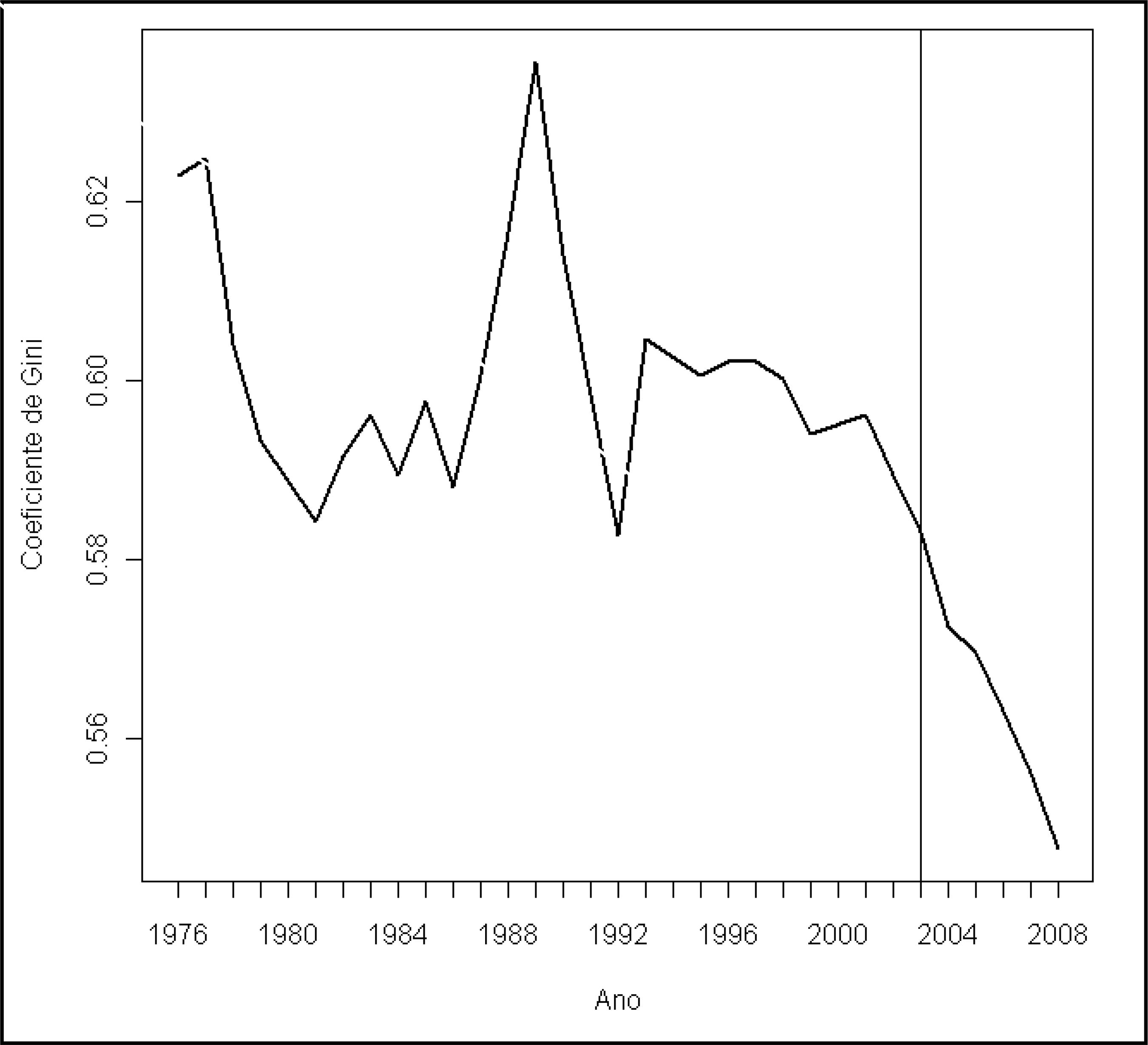Abstract
The geographic pattern of Lula's vote swings between 2002 and 2006 presidential elections is one of the most intriguing political phenomenon of Brazilian recent history. Several studies show that the program "Bolsa Família" increased considerably Lula's support among the poor, having a crucial role on the 2006 electoral results. In this article, I analyze a municipal-level data set and use spatial econometrics techniques to show that Lula's electoral performance is also negatively associated with the proportion of the rich. My claim is that the program explains both effects: the poor responded to improvements in their material living conditions and the rich responded to opportunity costs of public investments that did not benefit them directly.
Bolsa Família; elections; electoral costs; spatial econometrics; Lula

 Fonte:Ipeadata.Nota: A linha vertical indica o ano em que Lula foi eleito presidente pela primeira vez.
Fonte:Ipeadata.Nota: A linha vertical indica o ano em que Lula foi eleito presidente pela primeira vez.
 Fonte:Ipeadata e cálculos do autor.Nota: A linha vertical indica o ano em que Lula foi eleito presidente pela primeira vez. Os valores da renda per capitaestão em R$ de 2008.
Fonte:Ipeadata e cálculos do autor.Nota: A linha vertical indica o ano em que Lula foi eleito presidente pela primeira vez. Os valores da renda per capitaestão em R$ de 2008.
 Fonte:Elaboração própria com base em dados do TSE.
Fonte:Elaboração própria com base em dados do TSE.



